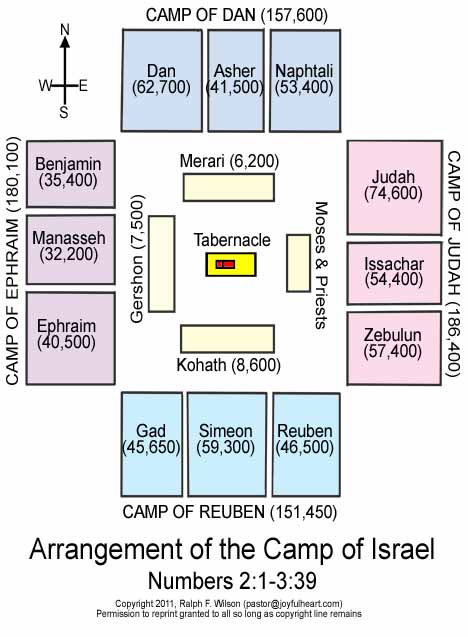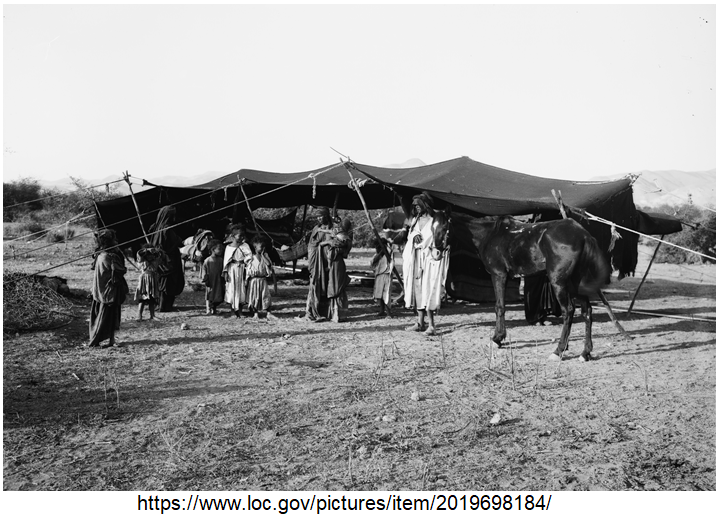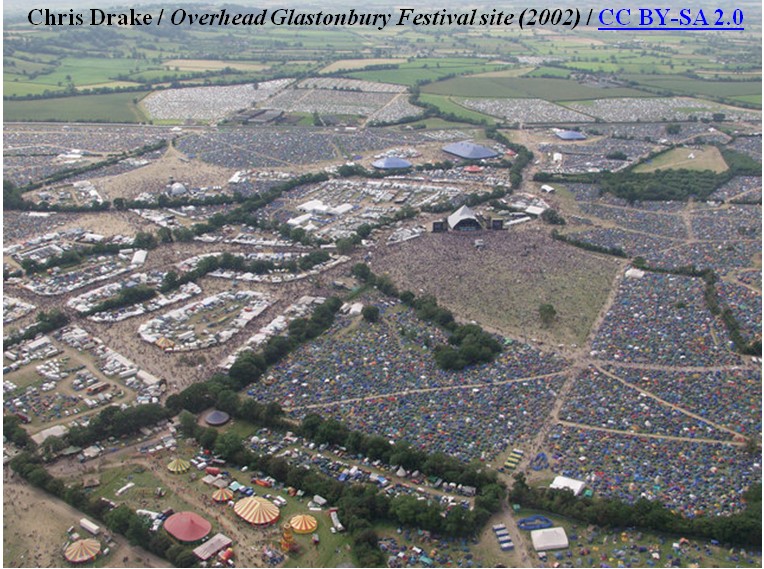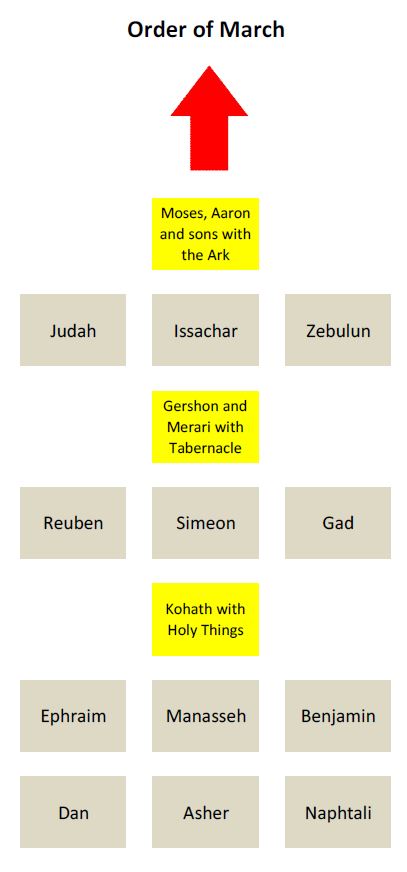I feel bad that I am not covering Leviticus or the first chapters of Numbers – I’d like to come back to these later if possible. But for those who have followed the desert wanderings of the Israelites so far, I will concentrate on filling in the gaps before I begin the book of Joshua.
As you read on you will be faced with many strange names! I simply decide how I would pronounce them and carry on boldly – if someone knows better they will correct you. (Hearing a Jew pronouncing ‘Capernaum’ confirmed that my method would have to do – I couldn’t begin to get it right).
First read Numbers 9:15-23
15 On the day the tabernacle, the tent of the covenant law, was set up, the cloud covered it. From evening till morning the cloud above the tabernacle looked like fire. 16 That is how it continued to be; the cloud covered it, and at night it looked like fire. 17 Whenever the cloud lifted from above the tent, the Israelites set out; wherever the cloud settled, the Israelites set up camp. 18 At the Lord’s command the Israelites set out, and at his command they set up camp. As long as the cloud stayed over the tabernacle, they remained in camp. 19 When the cloud remained over the tabernacle a long time, the Israelites obeyed the Lord’s order and did not set out. 20 Sometimes the cloud was over the tabernacle for only a few days; at the Lord’s command they would set up camp, and then at his command they would set out. 21 Sometimes the cloud stayed only from evening till morning, and when it lifted in the morning, they set out. Whether by day or by night, whenever the cloud lifted, they set out. 22 Whether the cloud stayed over the tabernacle for two days or a month or a year, the Israelites would remain in camp and not set out; but when it lifted, they would set out. 23 At the Lord’s command they set up camp, and at the Lord’s command they set out. They obeyed the Lord’s order, in accordance with his command through Moses.
Now back to verse 15:
15 On the day the tabernacle, the tent of the covenant law, was set up, the cloud covered it. From evening till morning the cloud above the tabernacle looked like fire. 16 That is how it continued to be; the cloud covered it, and at night it looked like fire.
In Acts chapter 2 we read: ‘what seemed to be tongues of fire . . . separated and came to rest on each of them’.
In the Acts passage God’s presence in the form of the Holy Spirit is described as fire. Here God’s presence was demonstrated by a pillar of cloud (Exodus 13:20-22) – but it also looked like fire. I picture it as being illuminated from within, and clearly visible from a distance, even at night.
Everyone could see it, wherever you were in the camp, whatever your age or status. This was to be a constant reminder – God was with his people.
But they had their part to play too: They had to stay close to God!
17 Whenever the cloud lifted from above the tent, the Israelites set out; wherever the cloud settled, the Israelites set up camp. 18 At the Lord’s command the Israelites set out, and at his command they set up camp. As long as the cloud stayed over the tabernacle, they remained in camp.
This was so important. They had to learn that they depended entirely on God and their responsibility was to follow closely where he led. But this was no mean feat – the camp covered an enormous area.
The numbers of people involved were vast, but Moses had been instructed to arrange that every man over the age of twenty should be counted and have their names recorded (Numbers 1:2-5). Then they could be assigned specific places for their families to camp (Numbers 2)
The Tribe of Levi was to be different. Numbers 3:11-13:
11 The Lord also said to Moses, 12 ‘I have taken the Levites from among the Israelites in place of the first male offspring of every Israelite woman. The Levites are mine, 13 for all the firstborn are mine. When I struck down all the firstborn in Egypt, I set apart for myself every firstborn in Israel, whether human or animal. They are to be mine. I am the Lord.’
From the Levites, only Aaron and his descendants were to be priests (Numbers 3:5-10); the others were given specific duties regarding the Tabernacle (Numbers 3 and 4).

This plan shows the general arrangement of the tribes
(Detailed instructions are given in Numbers 2:1-31 and 10:11-33).
Each family within the tribe would have had their own tent

(which would have to be continually taken down and re-erected) and perhaps flocks or herds of animals to be gathered. And look at the numbers involved!
The tribe of Levi, divided into its clans, camped closest on all four sides of the Tabernacle.

To put it in perspective, this is a picture of some of the campsite at the Glastonbury Festival where the small plastic tents for around 200,000 people are packed into as small a space as possible. (1 million square meters of campsite!)
Besides the people, the Tabernacle itself had to be dismantled and moved, and Numbers chapters 3 and 4 explain in detail who would be responsible for this and exactly how it was to be done. (You may need a reminder of the details of how the Tabernacle and courtyard were constructed: Exodus chapters 26 and 27.)
19 When the cloud remained over the tabernacle a long time, the Israelites obeyed the Lord’s order and did not set out. 20 Sometimes the cloud was over the tabernacle for only a few days; at the Lord’s command they would set up camp, and then at his command they would set out. 21 Sometimes the cloud stayed only from evening till morning, and when it lifted in the morning, they set out. Whether by day or by night, whenever the cloud lifted, they set out. 22 Whether the cloud stayed over the tabernacle for two days or a month or a year, the Israelites would remain in camp and not set out; but when it lifted, they would set out. 23 At the Lord’s command they set up camp, and at the Lord’s command they set out. They obeyed the Lord’s order, in accordance with his command through Moses.
Why do you think they continually moved and stopped, sometimes only overnight (v21)?
Verse 23 holds the clue ‘At the Lord’s command they set up camp, and at the Lord’s command they set out. They obeyed the Lord’s order, in accordance with his command through Moses.’
Basic training in any armed forces involves a lot of drill, and the aim of that is to teach people to obey orders – immediately and without question.
It was a ‘military’ exercise to pack up the Tabernacle and set it up again but unlimited manpower was available and they would soon learn how to complete the whole exercise very quickly.
The ordinary people were also to be taught to obey orders in the same way. Their own tents had to be packed and ready to move and families, clans, and tribes were assigned their ‘marching orders’ (Numbers chapter 2)
It was going to be essential that from the beginning everyone learnt to obey the word of the Lord. You would think that after 400 years of slavery in Egypt obeying orders was second nature, but these people were now free – and some would be resentful that they were still being told what to do.
Before we rush to judge them, are we always quick to follow the Lord’s commands? (We still have remnants of Adam’s sin: ‘I want to do what I want to do – I don’t want to be told by God what to do’.)
Now Numbers 10:1-36
1 The Lord said to Moses: 2 ‘Make two trumpets of hammered silver, and use them for calling the community together and for the camps to set out. 3 When both are sounded, the whole community is to assemble before you at the entrance to the tent of meeting. 4 If only one is sounded, the leaders – the heads of the clans of Israel – are to assemble before you. 5 When a trumpet blast is sounded, the tribes camping on the east are to set out. 6 At the sounding of a second blast, the camps on the south are to set out. The blast will be the signal for setting out. 7 To gather the assembly, blow the trumpets, but not with the signal for setting out.
So (v7) there were to be different calls for different purposes just like many modern military uses today (a bugle or keyless trumpet can produce 5 notes so many different calls can be played).
But the sound of the trumpet was to have another use too. What was that?
(read verses 8-10!)
8 ‘The sons of Aaron, the priests, are to blow the trumpets. This is to be a lasting ordinance for you and the generations to come. 9 When you go into battle in your own land against an enemy who is oppressing you, sound a blast on the trumpets. Then you will be remembered by the Lord your God and rescued from your enemies. 10 Also at your times of rejoicing – your appointed festivals and New Moon feasts – you are to sound the trumpets over your burnt offerings and fellowship offerings, and they will be a memorial for you before your God. I am the Lord your God.’
The sound of the trumpet would be a reminder to the Lord (v9) that he had said he would rescue them, and a reminder to the people (v10) that he had rescued them.
The Israelites leave Sinai
11 On the twentieth day of the second month of the second year, the cloud lifted from above the tabernacle of the covenant law. 12 Then the Israelites set out from the Desert of Sinai and travelled from place to place until the cloud came to rest in the Desert of Paran. 13 They set out, this first time, at the Lord’s command through Moses.
It seems that this first time, the people needed Moses to tell them to move!
(In Numbers 4:1-20 there is more information relating to exactly how the Tabernacle and its contents were to be dismantled and moved.)

Firstly it was the duty of Aaron and his sons (the priests) to enter the Tabernacle and cover all the holy items (Numbers 4:1-20), then they could remove the Ark and take up position with Moses at the front of the column (Numbers 10:33).
When this was done the Kohathites were allowed to enter the Tabernacle to take out all the other removable items.
14 The divisions of the camp of Judah went first, under their standard. Nahshon son of Amminadab was in command. 15 Nethanel son of Zuar was over the division of the tribe of Issachar, 16 and Eliab son of Helon was over the division of the tribe of Zebulun.
17 Then the tabernacle was taken down, and the Gershonites and Merarites, who carried it, set out.
The Gershonites located on the West side of the court of the Tabernacle, were the “tent-men.” They cared for the coverings, curtains, ropes and cords, necessary for the Tabernacle (Numbers 3:25,26; 4:21-38). These they loaded onto two ox-carts (Numbers 7:3-9).
The Merarites, located on the North of the court, were custodians and carriers of the frames, crossbars, posts, bases, and tent-pegs of the Tabernacle and surrounding courtyard (Numbers 3:36-38; 4:29-33). These they loaded onto four ox-carts (Numbers 7:8).
18 The divisions of the camp of Reuben went next, under their standard. Elizur son of Shedeur was in command. 19 Shelumiel son of Zurishaddai was over the division of the tribe of Simeon, 20 and Eliasaph son of Deuel was over the division of the tribe of Gad.
21 Then the Kohathites set out, carrying the holy things. The tabernacle was to be set up before they arrived.
The Kohathites, located on the South side of the court, cared for the Ark, the table, the lampstand, the altars and all holy items used in the Tabernacle. All these items had to be carried using poles inserted through carrying-rings. (Numbers 4:15)
22 The divisions of the camp of Ephraim went next, under their standard. Elishama son of Ammihud was in command. 23 Gamaliel son of Pedahzur was over the division of the tribe of Manasseh, 24 and Abidan son of Gideoni was over the division of the tribe of Benjamin.
25 Finally, as the rear guard for all the units, the divisions of the camp of Dan set out under their standard. Ahiezer son of Ammishaddai was in command. 26 Pagiel son of Okran was over the division of the tribe of Asher, 27 and Ahira son of Enan was over the division of the tribe of Naphtali. 28 This was the order of march for the Israelite divisions as they set out.
Almost ready to go – but:
29 Now Moses said to Hobab son of Reuel the Midianite, Moses’ father-in-law, ‘We are setting out for the place about which the Lord said, “I will give it to you.” Come with us and we will treat you well, for the Lord has promised good things to Israel.’
30 He answered, ‘No, I will not go; I am going back to my own land and my own people.’
31 But Moses said, ‘Please do not leave us. You know where we should camp in the wilderness, and you can be our eyes. 32 If you come with us, we will share with you whatever good things the Lord gives us.’
Verse 31 is difficult to understand as it was the Lord who led them from place to place. But perhaps his brother-in-law knew the desert and was a skilled survival instructor! We don’t know if he finally went with Moses or not.
33 So they set out from the mountain of the Lord and travelled for three days. The ark of the covenant of the Lord went before them during those three days to find them a place to rest. 34 The cloud of the Lord was over them by day when they set out from the camp.
35 Whenever the ark set out, Moses said,
‘Rise up, Lord! May your enemies be scattered; may your foes flee before you.’
36 Whenever it came to rest, he said,
‘Return, Lord, to the countless thousands of Israel.’
Just a three day march (v33) – that would be enough to start with!






